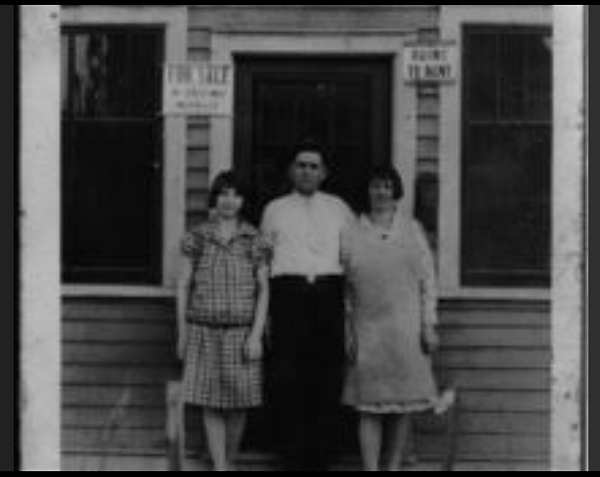

A family forever changed
It’s nearing the end of October, 1914. Minding your own business, in your own home, you hear a knock at the front door. To your surprise two RCMP officers are standing there, waiting for you. Without warning, you are arrested and labeled as an “enemy alien” and are being taken away from everything and everyone you love.
The crime? Having an Austrian-Hungarian passport.
This is Maxsym Boyko’s story, told through his descendant's eyes.

Photo courtesy of Olana Thomson
“My grandfather, Maxsym Boyko, was interned during World War One. He was one of the Austrian/Hungarian passport holders who had immigrated to Canada before the war. And then he was labelled an enemy alien once the War Measures Act was passed at the beginning of World War One," said Olana Thompson, Boyko's granddaughter.
All of Maxsym’s personal property was confiscated and he was arrested without a chance to explain himself.
There was no trial held for him.
He was simply taken away because that was the law at the time.
“The first camp that he went to was Petawawa, Ontario. And then he went and spent some time in Spirit Lake, Quebec, which is a very remote area. And he was released two years later in June of 1916,” said Thompson.
Shortly after being released from the camp, Maxsym faced the possibility of deportation back to Eastern Europe. He narrowly escaped that fate from the help of his co-worker from the grocery store that he worked at. He stood up for Maxsym as a character witness.
Maxsym knew his time in Eastern Canada was done, so he headed West.
Saskatoon, Saskatchewan was where he decided to reside. To blend in with the rest of society, Maxsym decided he would no longer go by his given name and would now call himself and tell others that his name was Mike.
The effect of being interned left a mark on Maxsym, and affected his family after him.
Maxsym later met his wife and started a family. They raised five of their children in Saskatoon, then later moved to Prince Albert with their family and had two more children. It became their home.
Otto Boyko is one of Maxsym's sons.
The Next Generation
Otto remembers his father never mentioning or speaking of his internment to his children. It was only until Otto's mother, Maxsym's wife, mentioned it to their children when one of their son's came back from basic military training at Petawawa camp.
After that the news wasn't a shock, but it did stick with Otto for many years. In 1996, Otto and his wife decided to go on a cross country trip through Canada and while in Ottawa, they stopped at the national archives to do some research into his father's internment.
They did an extensive amount of research. They looked into historical documents, wrote to the Ukraine and wrote to the secretary of state in Ottawa. It wasn't until they contacted a professor at the University of Alberta, who had written a story on Spirit Lake, that they were successful.
"Long behold he had a little history about Spirit Lake, he also had a letter.. on that was a list of about 10 or 15 names of people that they still owed money too. And my dad's name was on there, and he was owed 27 dollars and 61 cents."


Maxsym's release papers. Photo courtesy of Olana Thomson
Otto still works to get the money his father was owed.
Lost traditions and Blame
Audio of Olana Thomson and her father, Otto Boyko, talking about their tendency to avoid traditions and the attitude of fellow Canadians towards Ukrainians after the First World War.